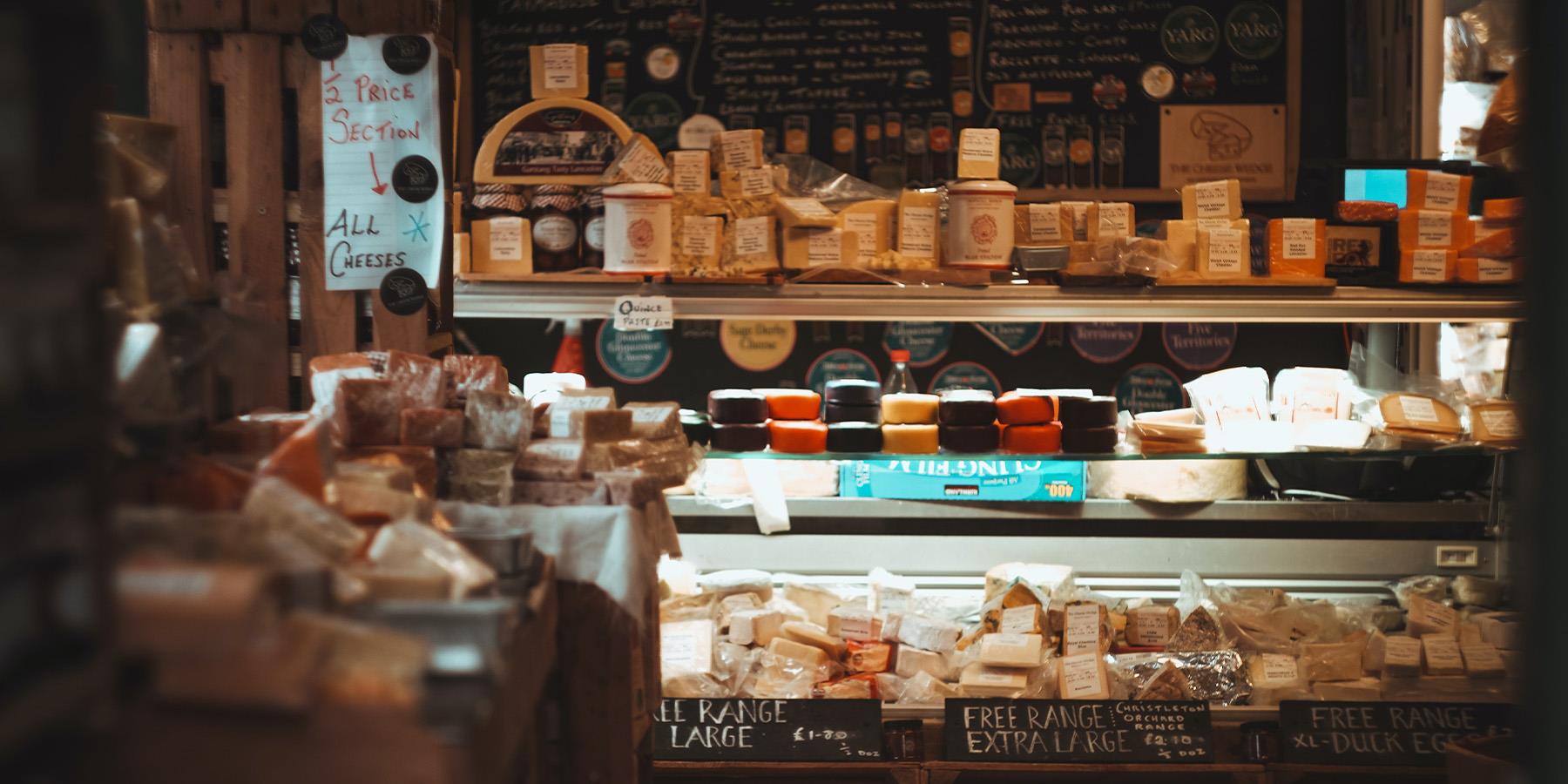Leicestershire’s link to pies and Stilton goes hand in hand with its abundance of farm shops. These rustic outlets often started as wooden stalls selling spuds and Sunday joints at farm gates. They have grown and modernised, but the ethos remains the same: high-quality, sustainably produced local food.
But how did Leicestershire get so many? It goes something like this. Back in the day, the county’s good grazing land made it ideal for cows. This led to Stilton. Next came pig farms, using cheese’s byproduct – whey – to feed their porkers. Leicestershire’s pigs multiplied further in the 19th century when fox hunters demanded energy-packed snacks for eating on the hoof – enter the Melton Mowbray pork pie.
This agricultural heritage has given Leicestershire a large farm-shop footprint. In the south, small shops like Grazers of Ashby Parva, Bridge 67 Butchers in Kibworth and Woodhouse Farm Shop in Elmsthorpe keep the farm-to-fork ethos strong. And award-winning Farndon Fields in Market Harborough, which began as a small veg stall, shows how professional a farm shop can get given time and expertise.
Further north, Stonehurst Farm in Mountsorrel – next to Michelin-starred John’s House Restaurant (run by the farmer's brother) – provides a beautiful example of a rustic, welcoming farm shop. Its in-house bakery uses wheat grown on the farm. And Manor Farm in Long Whatton offers superb organic produce.
To the west, Cattows Farm Shop in Heather allows customers to pick their own fruit, and to the east, March House Farm in Great Dalby sells food grown using its regenerative agriculture techniques.
And, of course, almost every Leicestershire farm shop sells pork pies and Stilton. For most county visitors, they are an almost-obligatory purchase.

